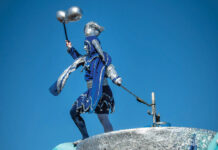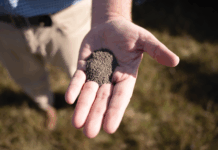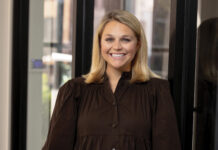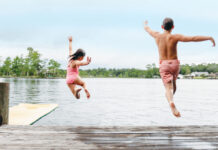


Tiny McPhillips vacillates between excitement and reverence when she talks about summers at Camp Nakanawa. As she describes the proper way to paddle a canoe — blading, she calls it — on a silent lake before breakfast, her face is serene and you can almost feel the peace the memory evokes. But in an instant, her eyes look to the ceiling and her face erupts in a smile when she switches to talking about the pure joy of jumping in a cold pool during free swim, seeking relief from the summer sun and a chance to play like little girls, with no self-consciousness.
Camp brought independence, structure, peace and endless amounts of fun for Tiny as a small child in the woods of Tennessee, where electricity was scarce and the traditions were unchanging. They still are today. Tiny goes back to Nakanawa every summer and is preparing for her 47th year in the woods where generations of little girls have found new friends, new skills and often, themselves.
Her mother first attended the all-girls summer camp in 1926, and all Tiny’s sisters went as well. Tiny was the youngest in her family, and she took to camp like a fish to water. She followed her years as camper with the title of counselor, and after a small break after she married, returned to Nakanawa as a leader when her youngest daughter was only 4, bringing the preschooler along for the experience.
We talk through skinned knees and vespers, meal time and homesickness, for which Tiny has a cure. “A busy girl is a happy girl,” she says plainly. After camp drop-off that first year, she felt a sense of panic and went to find her older sister for comfort. “She was 12 and I was 8. And I said ‘I want to go home.’ And she said, ‘Oh, shut up.’ I went to the bathroom, locked myself in the farthest stall and cried for about a half an hour. Then I got up, got over it, and had the time of my life. And I stayed for 10 years after that. And I’m still there.”

Into the Woods
Summer camps sprouted at the turn of the last century when industrialization brought a new urban lifestyle. Americans’ daily lives became disconnected from nature, and the romantic fashion of the time made people seek that connection for their children. In 1900, there were fewer than 100 camps in the United States, but by 1918, over 1000 were in operation.
While camps for boys were more prevalent than those for girls, both offered fresh air in the great outdoors while emphasizing athleticism and old-fashioned fraternity. The values that these camps were founded upon endured and are even more appealing to parents today. In a world of helicopter parents, ubiquitous screens and the prevalence of anxiety and depression in teens and children, the appeal of laughter, sunshine and playing so hard that you crash into bed at night can be just what the doctor ordered.
For Richard Frost, who went to Camp Laney in Mentone, Alabama, for five consecutive summers as a kid, it was also a time to find out who he could be. “I felt like a distinct version of me at camp,” he remembers. “I think it was the increased responsibility for self-care and self-reliance. But it was also a complete shift in your perception of place — physically and socially. I realized after leaving home that there is more than one way to be yourself. I carried that year to year.” He says it was something he wanted for his kids as well, and the reason his kids will be spending their fifth year away this summer at camps Laney and Alpine in Mentone.
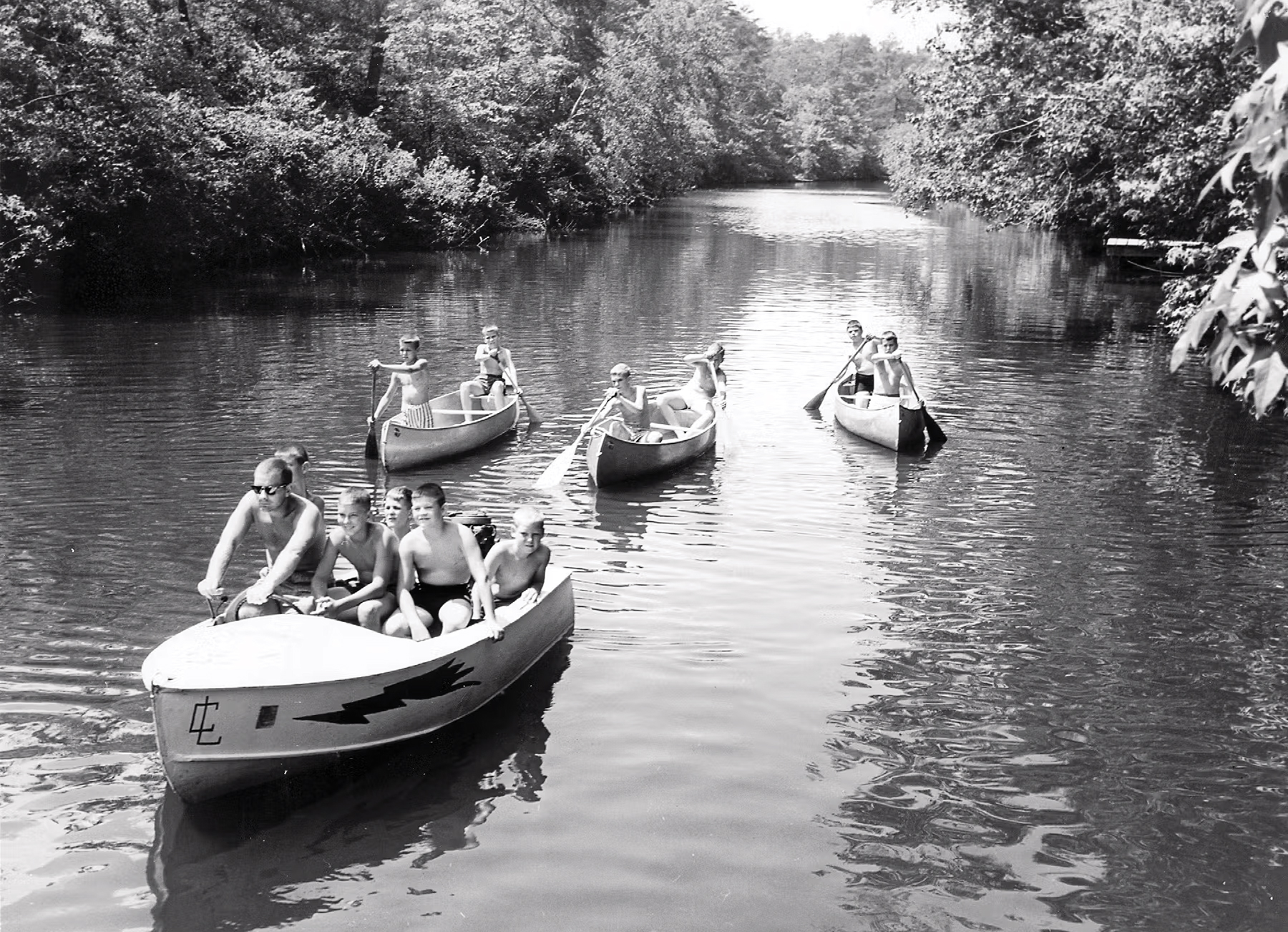
“I want them to have the same chance for freedom, independence and self-realization that I had.” It helps that his three boys love camp. “I do think it is much more important today than it ever was before. The world is so different now. When we were kids, the summer was for going outside. Especially at the Bay. Now the kids want to stay inside and watch TV most of the day, even at the Bay.” But summer camps have hardly changed, no matter where you go or what decade you were there.
“Camp Nakanawa has been open since 1920,” explains Tiny, “and not much has changed at all. The bathroom is the same as it was when I was there in the 1960s and 70s. You really have to learn how to rough it!” Sure, campers have traded their knickers and sailor shirts for athletic shorts and Nikes, but beyond that the place would still feel like home to her mother. The beauty, she says, is that we are hardly ever outside anymore. Watching young kids at camp feel the weather, be aware of rising storms and running for cover from the lake is a memory they will never forget and something they don’t experience in their suburban bubbles.
The socialization offered at camp is a big plus for parents in our digital and disconnected world, as well. “Camp lets the kids unplug and have actual interactions with actual people,” says Richard, “and they interact across a range of age groups.” He says it’s like a social vitamin for this generation. They need it!
Tiny agrees that the “bunkies” arrive so “city sophisticated” and then within a day they are doing cartwheels. “They are just playing like little girls are supposed to do. I am so grateful that I get to see that.”

Kay Honeycutt Braswell remembers summers spent under the pines and magnolias of Scoutshire Woods, a Girl Scout outpost on Echo Lake in Citronelle. Now in her mid-eighties, she still gets together with lifelong friends made as Counselors in Training there in 1956. And while she says mentoring young campers was the highlight of the experience, she adds that the little, unexpected things about camp stick with you for life. “We killed and skinned snakes, which I would never do again!” she remembers with a laugh.
Richard agrees. “Camp was never about any major defining moments,” he says. “There were everyday accomplishments and always new adventures.” Like mastering the rope swing backflip and the front flip. (“Some say it can’t be done, but it can be, oh yes, it can be!”)
The joy of summer camp is cumulative. It’s the sum of all the little things gained and experienced as a group, away from your parents, and set amongst nature. This summertime right of passage has brought a sense of adventure, independence and structure to generations of Bay-area kids, always sprinkled with a few dusty paths, unexpected thunderstorms and slamming screen doors, as well. There’s going to be wet bathing suits, tennis rackets and maybe a good, old-fashioned tug of war, as well as water skis, horses and lifelong friendships. Camp is all about celebrating the little things, living simply, and finding a new version of yourself — one that you can be incredibly proud of!

